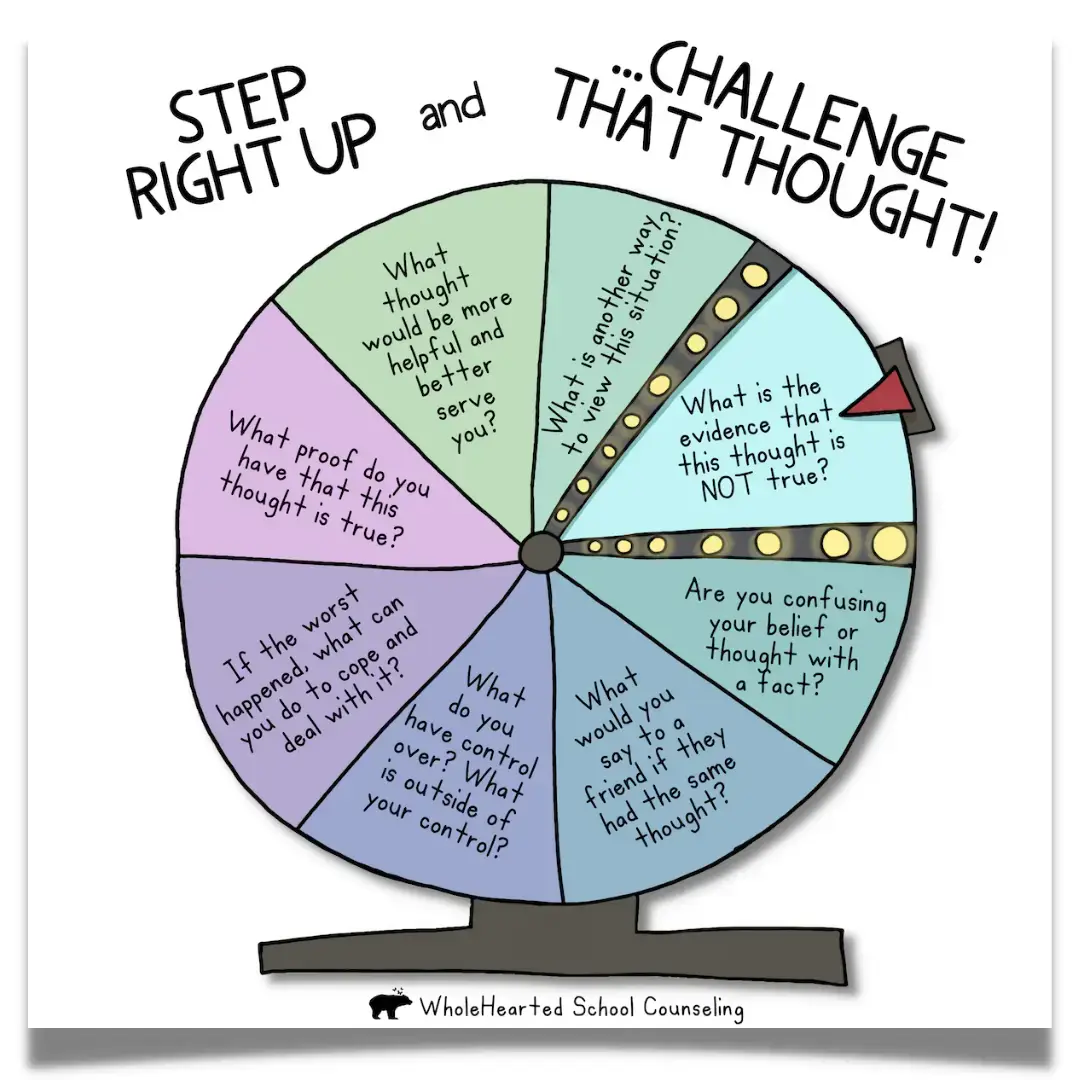Powerful benefits of counselling for teens in building resilience
Just How Young Adult Therapy Can Advertise and equip young minds Growth
Young adult therapy plays a critical duty fit the mental well-being of teenagers. It attends to the one-of-a-kind obstacles they face, cultivating psychological recognition and resilience. By discovering different restorative methods, young individuals can create vital coping approaches. This procedure not just help in individual growth however also improves their capability to browse relationships. Understanding the characteristics of this restorative trip exposes much deeper understandings into just how it can essentially change their path towards the adult years.
Comprehending the Value of Mental Health in Teenagers
Why is psychological wellness essential for teens throughout their developmental years? This period is noted by quick physical, emotional, and cognitive modifications. Teens usually browse complicated social dynamics, academic stress, and the quest for identification, making psychological health a crucial part of their general health. Healthy and balanced mental states permit teens to establish strength, grow self-worth, and manage stress and anxiety properly. In addition, addressing mental wellness issues early can protect against lasting emotional complications, allowing teenagers to flourish academically and socially.
Understanding mental wellness in teenagers includes identifying the special obstacles they face. Understanding and support can foster open communication, enabling young people to share their feelings and look for assistance when needed. By prioritizing mental health and wellness, society can empower teens to build coping approaches, develop healthy and balanced partnerships, and achieve their complete possibility. Ultimately, supporting psychological well-being throughout these developmental years lays the structure for a balanced, satisfying the adult years.
Usual Challenges Dealt With by Teens
Teens often encounter numerous difficulties that can substantially affect their mental wellness. Psychological regulation struggles, peer pressure dynamics, and scholastic anxiety management prevail concerns that shape their experiences. Resolving these challenges is important for promoting durability and empowerment in young adults.
Emotional Guideline Struggles
Many young adults run into significant emotional law battles as they navigate the intricacies of adolescence. This developmental stage is noted by rising and fall feelings, often leading to problem managing feelings such as despair, stress and anxiety, and temper. Youthful individuals may discover themselves bewildered by their psychological feedbacks, resulting in impulsive habits or withdrawal. Variables such as hormone adjustments, public opinions, and academic difficulties worsen these battles. Lots of teens lack the coping approaches needed to share their feelings properly, which can cause disputes in relationships and prevent personal development. Additionally, feelings of seclusion may occur, as they often think their experiences are special. Identifying and dealing with these emotional regulation problems via treatment can empower adolescents to establish healthier coping systems and foster durability.
Peer Pressure Characteristics
Browsing the psychological turbulence of teenage years usually brings teenagers in person with peer pressure dynamics. This powerful impact can significantly shape their options, habits, and self-image. Teens might really feel compelled to satisfy their peers' assumptions, resulting in dangerous behaviors, such as substance use or undesirable partnerships. The need for approval and worry of denial escalate these pressures, typically resulting in internal problem. Teens may battle to assert their originality, fearing reaction from their colleagues. Treatment can supply a risk-free room for young people to discover these dynamics, enabling them to develop techniques for resisting adverse impacts (therapists for teenagers near me). Through empowerment and self-awareness, adolescents can learn to navigate peer stress better, promoting strength and promoting much healthier decision-making

Academic Tension Management
Just how do scholastic pressures influence the well-being of teenagers? For lots of teens, the quest of high qualities and university readiness frequently brings about overwhelming stress. This anxiety materializes in different means, including anxiousness, clinical depression, and physical health and wellness concerns. The fear of failing and the ruthless competitors can create a hazardous environment that impedes social and emotional advancement. Additionally, impractical expectations from teachers and moms and dads can exacerbate feelings of inadequacy. Young adults might have a hard time to balance academics with after-school activities, additionally increasing their stress and anxiety levels. Efficient scholastic anxiety monitoring techniques, such as time management, relaxation strategies, and seeking support, become essential. By dealing with these challenges, treatment can empower teenagers to establish much healthier coping devices, cultivating resilience and promoting general well-being.
The Role of Therapy in Teen Advancement
As teenagers shift through the complexities of adolescent years, treatment emerges as a critical assistance system, cultivating emotional durability and individual growth. Throughout this formative period, teens grapple with identity, peer pressure, and emotional turmoil. Therapy gives a secure space for them to discover their feelings, ideas, and behaviors without judgment. This why not look here expedition improves their self-awareness, enabling them to recognize their see feelings and responses more deeply.
Treatment helps adolescents establish coping approaches to handle stress and anxiety and anxiousness, necessary skills that will certainly benefit them throughout life (counselling for teens). By engaging in healing conversations, young adults learn to verbalize their requirements and establish much healthier partnerships. This procedure not just promotes individual development yet likewise adds to much better interaction and problem resolution skills. Eventually, treatment works as a vital tool in leading young adults towards favorable advancement, equipping them to browse the obstacles of adolescence with confidence and strength
Methods Used in Teenager Treatment
In teenager therapy, various strategies are employed to promote empowerment and individual growth. Cognitive Behavioral Techniques concentrate on reshaping negative thought patterns, while Expressive Arts Therapies motivate self-discovery with creative expression. Together, these methods give adolescents with beneficial devices to browse their psychological and emotional difficulties.
Cognitive Behavioral Strategies
Cognitive Behavior Methods (CBT) play a crucial function in teenager therapy, specifically as they attend to the distinct obstacles dealt with throughout teenage years. These strategies concentrate on recognizing and modifying negative idea patterns that add to psychological distress and behavioral issues. By encouraging teens to recognize unreasonable ideas and change them with useful ideas, CBT cultivates strength and coping approaches. Specialists typically use devices such as idea records, behavior experiments, and exposure tasks to aid adolescents challenge their anxieties and create much healthier responses. In addition, CBT emphasizes goal-setting, which equips teens to take ownership of their progression. This structured strategy not just eases signs and symptoms of anxiety and depression yet additionally equips young individuals with abilities to navigate life's obstacles better.
Meaningful Arts Therapies
While traditional talk treatments might not reverberate with every young adult, Expressive Arts Therapies supply an alternative technique that utilizes creative thinking as a way of self-expression and recovery. This technique incorporates numerous art types, consisting of paint, dancing, dramatization, and songs, allowing teenagers to connect emotions and experiences that may be challenging to express verbally. Involving in these imaginative processes can promote self-discovery, increase self-confidence, and facilitate emotional processing. The non-judgmental atmosphere of expressive arts allows teens to explore their identities and deal with obstacles in a supportive setting. By integrating expressive arts into therapy, practitioners can supply an alternative method that not just addresses psychological struggles but likewise empowers young minds to thrive and expand.
Building Durability Through Restorative Practices
As teenagers navigate the intricacies of their developing years, constructing strength with healing methods ends up being essential for their psychological well-being. Efficient restorative approaches, such as cognitive-behavioral treatment and mindfulness strategies, encourage teenagers to face difficulties and develop dealing strategies. By finding out to determine and manage their feelings, young individuals can grow a higher sense of self-efficacy.

Taking part in treatment permits teens to explore their thoughts and sensations in a safe setting, advertising adaptability when faced with hardship. This procedure urges them to check out troubles as chances for growth rather than insurmountable obstacles. Team treatment setups better boost resilience by cultivating social connections and supplying peer assistance, reinforcing the concept that they are not the only one in their struggles.
Eventually, restorative methods act as vital tools, equipping young adults with the skills essential to navigate life's obstacles and emerge more powerful and more durable in their trip towards adulthood.
The Long-Term Perks of Engaging in Therapy
Involving in treatment throughout teenage years can generate significant long-term benefits that prolong well right into the adult years. By addressing emotional and mental difficulties early, teenagers can develop healthier coping devices that persist throughout their lives. Therapy fosters self-awareness, equipping young people to comprehend their feelings and ideas much better, which can bring about boosted decision-making abilities.
Furthermore, consistent therapeutic engagement can boost interpersonal partnerships. Teenagers usually find out efficient communication and conflict-resolution techniques, which can enhance links with peers, household, and future coworkers. This structure of psychological intelligence often results in raised durability against stress and difficulty.
In addition, people that join therapy throughout their formative years may experience lowered dangers of mental wellness problems later in life. Ultimately, very early restorative intervention equips young adults with necessary tools for navigating life's intricacies, promoting both personal growth and overall health as they shift into the adult years.
Often Asked Questions

Just How Can Parents Assistance Their Teenagers Throughout Treatment Procedure?
Parents can support their teenagers throughout therapy sessions by actively paying attention, appreciating their privacy, urging open communication, and validating their sensations. They More hints ought to additionally stay individual and understanding as their teenagers navigate the healing procedure.
What Should a Young adult Expect in Their Initial Therapy Consultation?
In their very first treatment appointment, a young adult can expect an initial conversation, reviewing their issues and sensations. The therapist will certainly develop a safe setting, develop goals, and describe privacy to cultivate trust fund and visibility.
Are There Age Purview for Teenagers Seeking Treatment?
There are typically no rigorous age limitations for teenagers looking for therapy; nevertheless, solutions may differ by supplier - teenager therapy. A lot of therapists consider customers aged 13 to 19, while younger youngsters might need adult involvement or different sources
How Can Teens Discover a Specialist They Attach With?
Teenagers can find a specialist by looking for recommendations from trusted adults, looking into online directories, or making use of school resources. Structure relationship through preliminary examinations assists ensure a comfortable link, essential for efficient treatment and individual growth.
Is Online Therapy Reliable for Teenagers?

Online treatment can be efficient for teenagers, providing flexibility and access. Many young people value the comfort of virtual sessions, which can boost openness and facilitate interaction, inevitably adding to their psychological health and individual development.
Teen therapy plays a vital duty in forming the mental health of teens. In teen treatment, different techniques are employed to cultivate empowerment and personal development. Cognitive Behavioral Strategies (CBT) play a critical function in young adult treatment, especially as they address the one-of-a-kind difficulties faced throughout adolescence. While standard talk therapies might not resonate with every teen, Meaningful Arts Therapies supply an alternate strategy that takes advantage of creativity as a means of self-expression and recovery. Efficient therapeutic strategies, such as cognitive-behavioral treatment and mindfulness techniques, empower teenagers to challenge difficulties and establish dealing strategies.